Welsh-speaking dementia patient faces move to England
- Published

Thomas Griffith Jones' family are facing a 270-mile round trip to visit him
The family of an 82-year-old Welsh-speaker with dementia said they were "shocked" to find out he could be moved to England for care.
Thomas Griffith Jones, of Gwalchmai, is currently being cared for at Ysbyty Cefni, Llangefni, close to his home.
Despite understanding "only a bit of English" he is to be moved 135 miles (217km) from Anglesey to Stafford.
Betsi Cadwaladr health board said such a move was a "last resort" when no suitable care was available locally.
The health board said Mr Jones required specialist support for his complex needs.
However, his granddaughter Louise Renshaw has called for a different solution.
"We were shocked and couldn't believe they were going to move him to England, away from the family," she said.
"We were worried about the impact as we are so close as a family and the impact it would have on his dementia."
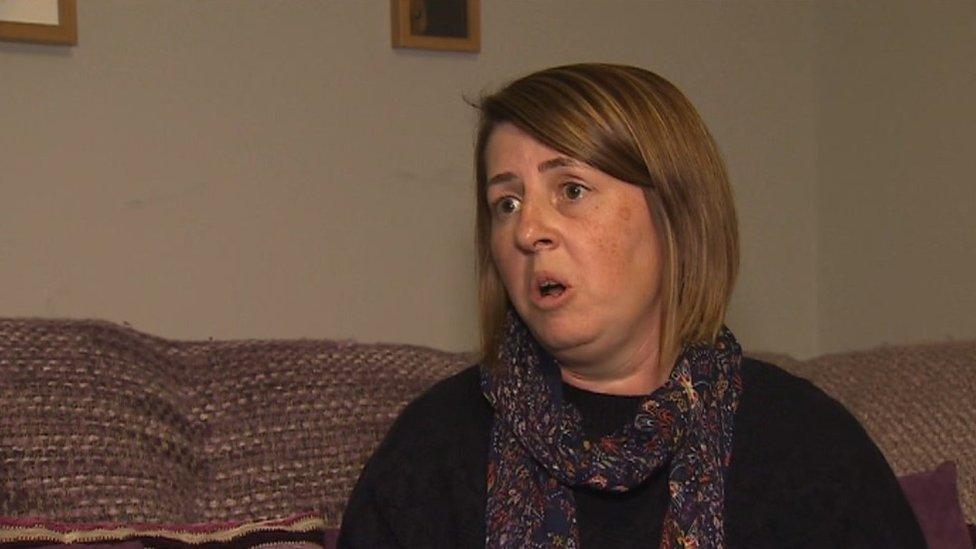
Louise Renshaw is worried about the impact on her grandfather's dementia
Mr Jones's family fear the move will be "very confusing and quite scary" for him and would mean relatives would not be able to see him as often.
"They are not listening to my grandfather's best interests. He mostly speaks in Welsh now, he only understands a bit of English," Mrs Renshaw said.
Older People's Commissioner for Wales, Heléna Herklots, said it was crucial not to overlook the "significant impact" moving someone from away from their community could have on their quality of life and wellbeing.
"For Welsh speakers, particularly those living with dementia, who may only be able to communicate in Welsh, being relocated away from a Welsh-speaking area can also create communication difficulties and create distress," she said.
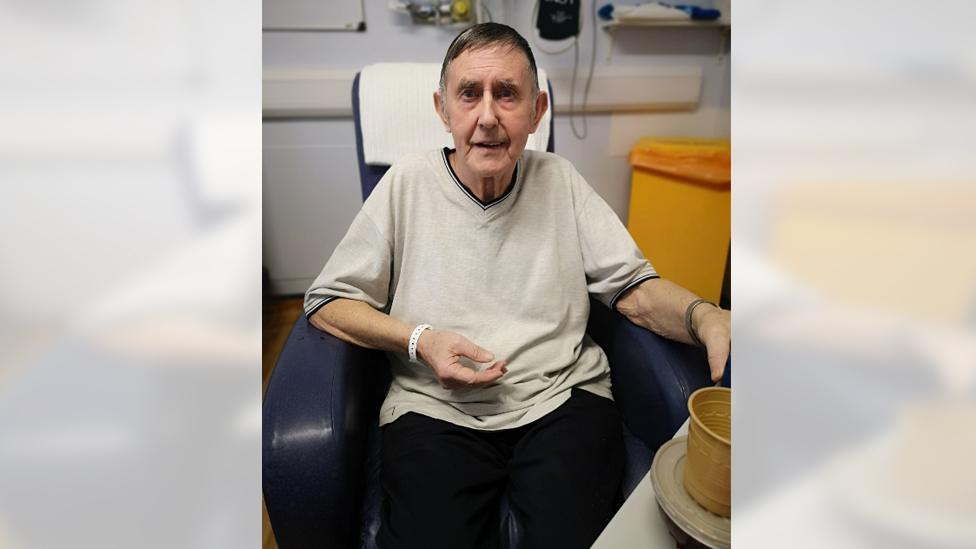
Mr Jones mainly speaks and understands Welsh
A spokesman for Betsi Cadwaladr University Health Board said patients who have been assessed at its units are either discharged back home with a suitable care package or transferred to an appropriately staffed and skilled nursing home.
"It is sometimes necessary to commission external providers to meet the complex needs of people who have a diagnosis of dementia and require very specialist support," he said.
But a "very small number" of patients will be placed in specialist care outside north Wales each year because their needs cannot be safely met closer to home.
"We recognise how unsettling this can be for patients, particularly those who speak Welsh as a first language," he said.
"These decisions are only ever taken as a last resort, once all alternative arrangements have been exhausted."
He said a specialist team would monitor the situation and "as soon as it is clinically appropriate to do so, these patients are repatriated to care homes closer to their home".
- Published31 October 2019
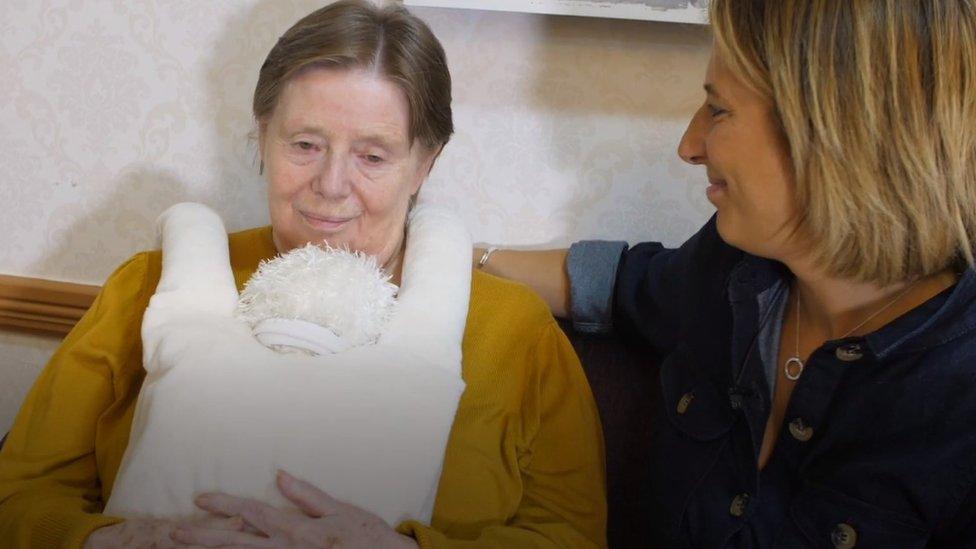
- Published19 June 2019
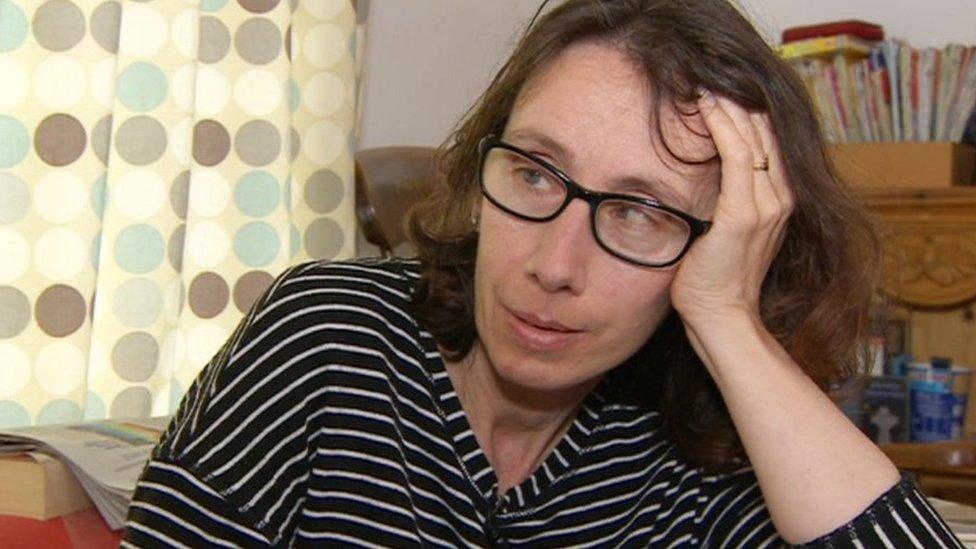
- Published22 October 2019
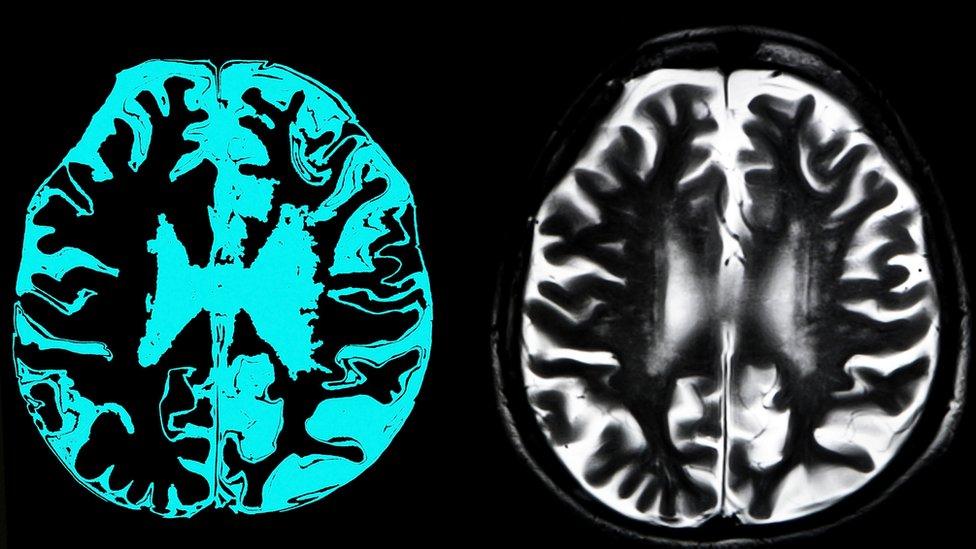
- Attribution
- Published21 October 2019
